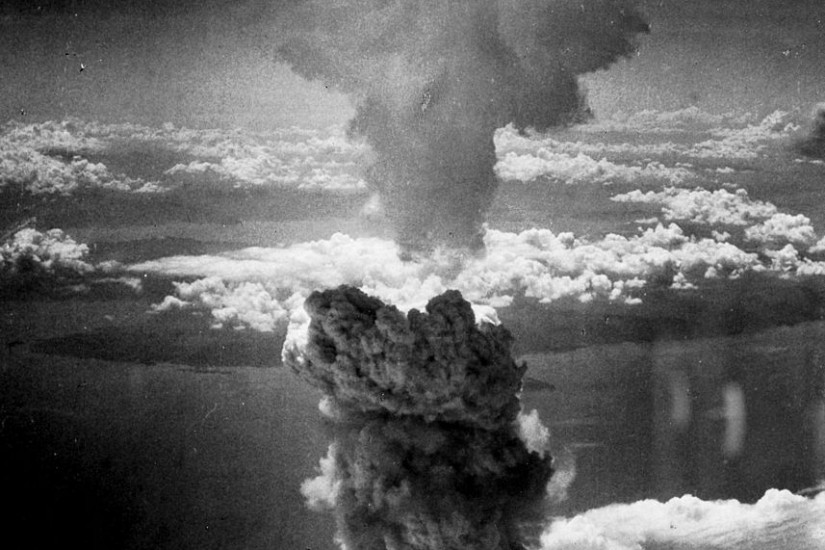Following new reports on North Korea’s rapid development of intercontinental ballistic missiles, which analysts say now include a miniature nuclear warhead, President Donald Trump said on Tuesday that Pyongyang has reason to stop any further nuclear posturing. “North Korea best not make any more threats to the United States,” the President said from his golf resort in Bedminster, N.J. “They will be met with fire and fury like the world has never seen.”
Observers quickly related his remarks to President Harry S. Truman’s fiery rhetoric in a statement 72 years ago, in which Truman announced toward the end of World War II that the U.S. had dropped an atomic bomb on Hiroshima. The parallel has proved particularly ripe for consideration given that Wednesday marks the anniversary of the bombing of Nagasaki.
In that statement, the President warned Japan to further “expect a rain of ruin from the air, the like of which has never been seen on this earth,” if they did not agree to end the war on U.S. terms. (Truman was traveling at the time, so Secretary of War Henry Stimson released the statement to the public on Aug. 6, 1945, less than a day after the bomb was dropped. The full text of the statement can be read below.)
However, despite the rhetorical similarities between the "rain of ruin" and the "fire and fury," presidential historians like Michael Beschloss say Trump's language has been unusually harsh considering the context, noting that President John F. Kennedy's statements during the Cuban Missile Crisis were more muted and that President Dwight D. Eisenhower made a point of not matching the provocative tone of Soviet leader Nikita Khrushchev.
Furthermore, historical details reveal a complicated context that surrounded Truman's threat and the advent of the atomic age.
For one thing, evidence suggests that — even though he remains the only President in history to have actually presided over the military use of an atomic bomb — Truman was in fact uncomfortable with the use of nuclear weapons.
His journal entries later showed that Truman thought the bomb would be used in a very specific way, as a strike against the military, not civilians.
